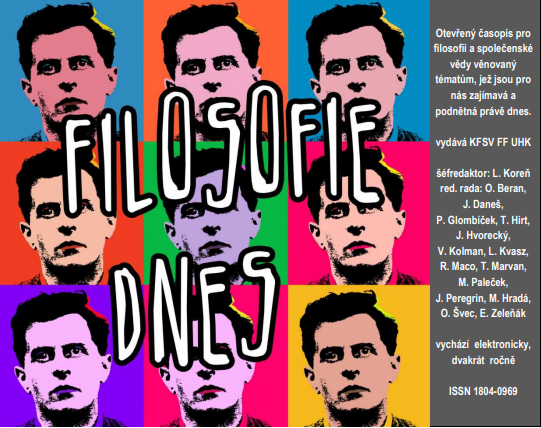Vykořisťovat
DOI:
https://doi.org/10.26806/fd.v8i1.162Keywords:
etika, Marx, sémantikaAbstract
Porovnáním významu slovesa vykořisťovat v 19. a 20. století odhalíme jeho dramatickou proměnu: z pojmu neutrálního se stává pojem silně záporný a objevuje se v okolí nových slov jako kapitalista, měšťák, proletář. Tento průnik Marxova idiolektu do češtiny (a do jiných jazyků) s sebou nese několik otázek: proč vnímá Marx tyto pojmy tak vyhraněně? Z jaké pozice, když odmítá morálku jako buržoazní přežitek, odsuzuje vykořisťování? Jeho eschatologicko-dějinný rámec umožňuje čistě negativní polaritu slovesa vykořisťovat a také, bohužel, zakládá jeho autogenocidní potenciál.
When comparing the meaning of the verb to exploit between the nineteenth and twentieth century we discover a dramatic transformation: from a neutral term it becomes a purely negative one and collocates with new words such as capitalist, bourgeoisie, proletarian. This penetration of the idiolect of Marx into Czech (as well as other languages) raises several questions: why does Marx use these words in such a categorical way? From what position, having rejected morality as a bourgeois prejudice, does he condemn exploitation? We find that it is his apocalyptic historical frame which enables the purely negative polarity of the verb to exploit as well as its autogenocidal potential.
Downloads
Published
Issue
Section
License
Authors who publish in this journal agree that:
1. Authors retain copyright and guarantee the journal the right of first publishing. All published articles are licensed under the Creative Commons Attribution license, which allows others to share this work under condition that its author and first publishing in this journal was acknowledged.
2. Authors may enter into other agreements for non-exclusive dissemination of work in the version in which it was published in the journal (for example, publishing it in a book), but they have to acknowledge its first publication in this journal.
3. Authors are allowed and encouraged to make their work available online (for example, on their websites) as such a practice may lead to productive exchanges of views as well as earlier and higher citations of published work (See The effect of open access).


